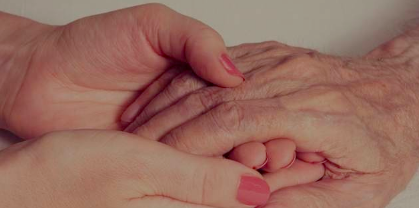
One of the things I used to pride myself on when I was a care worker was being able to get people who hadn’t washed in weeks or months to let me wash them. It’s not an easy transition, the one from functioning, muddling-along adult to being a stripped-bare, flannel-scrubbed, continence pad-clad dependent. You need someone to still see you, to be friendly and chatty in this undesired intimacy, to tend to your dignity, your fears and the moisture levels of your epidermis all at the same time. If those needs are not met, you might just wield the last of your power and ‘refuse personal care’. I’ve seen it many times.
Many of the care workers I worked with built therapeutic relationships without realising it. They knew the people in their care inside out: favourite songs to sing, strength of tea, exactly how to arrange the zimmer frame so that they could wee in a commode overnight and not the bed. Making sure the little bag with the (fully charged) mobile phone and pen torch is hanging from the bed nob, the emergency tissue is tucked under the pillow and the clock is turned to face you on the table because not knowing what time it is makes you feel so out of control. Putting your hair net on because you spent good money on that perm and it makes you feel like you. It’s the little things that make being old and frail that bit more tolerable, perhaps even enjoyable.
Being caring requires huge amounts of energy. I was so tired that I could barely function. I thought I was losing my mind and I was probably right. I couldn’t not give it everything, but I used to go a fortnight at a time without a day off in an attempt to cover short staffing. I quickly turned into a zombie. A zombie that couldn’t afford her rent.
It’s years down the line and I can’t see much that has improved. We’ve had battles about paying the basic minimum wage to care workers but I still hear of plenty that aren’t paid their travel time. Those companies that did pay for travel often clawed money back by cutting the amount they paid for mileage. Split shifts, a culture of bullying managers, zero-hour contracts, paying for everything from uniforms to training and car maintenance. We might love the work, but no one should be punished quite so brazenly for doing it. No wonder nearly half of care workers leave the profession within six months.
The equation is simple: councils need more money to provide care, and the government of the day needs to come up with a better way of raising that money and ensuring it goes to the people who need it and not the shareholders of private companies. But while we wait for that unicorn moment to arrive, there is something that councils can do to make working in social care a viable and sustainable lifestyle: adopt the Ethical Care Charter.
The Ethical Care Charter is a series of basic principles for dignified, first-class care designed by Unison. It centres on the simple yet radical idea that if you give the workers delivering care the resources they need and respect they deserve then the care they deliver will be of a higher quality. Over 30 councils have now adopted the charter, and I’m campaigning alongside Gloucester Labour for Gloucestershire County Council to be the next.
If we are to meet the needs of our ageing population to a standard that they deserve, we must rewrite the current social care system. The Ethical Care Charter provides a good foundation upon which to start.




More from LabourList
Government abandons plans to delay 30 local elections in England
‘The cost of living crisis is still Britain’s defining political challenge’
‘Nurses are finally getting the recognition they deserve’